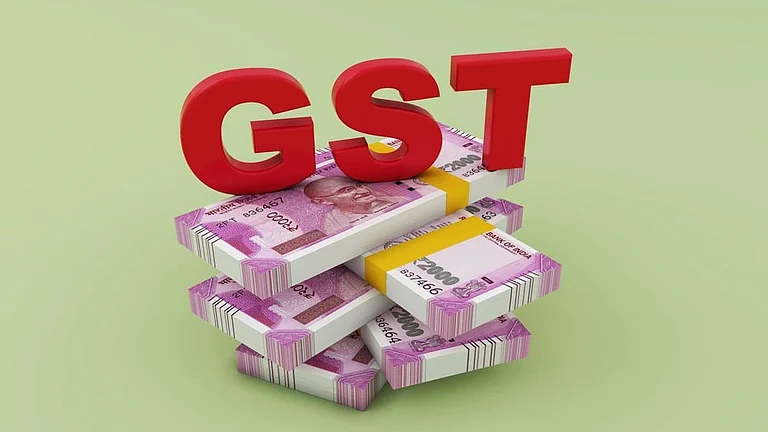IT giant Infosys was recently slapped with over Rs 32000 crore for alleged GST evasion by the Directorate General of GST Intelligence. As per reports, the alleged evasion took place between July 2017 and July 20, 2022. The notice was sent on July 30.
However, interestingly, the Karnataka government has withdrawn the GST notice, as per the company. In a regulatory filing, the company stated that it has received a notification from Karnataka State authorities withdrawing the pre-show cause notice. The authorities have instructed the company to provide additional information to the Directorate General of GST Intelligence (DGGI) central authority regarding this issue. Interestingly, this is not the first time that Infosys got a tax notice. There have been several instances where the teach gain was under the I-T radar.
What exactly is the notice?
The pre-GST notice that Infosys received says that Infosys received the notice for ‘non-payment of IGST on import of services as a recipient of services.’
The document states that Infosys Ltd., Bengaluru, has paid its overseas branch offices for the supplies received from them, categorized these payments as overseas branch expenses. Therefore, Infosys Ltd. Bengaluru is required to pay GST under the Reverse Charge Mechanism (RCM) for the supplies received from its branches outside India.
To simplify, while paying GST, a supplier has to pay the tax. However, under RCM, instead of the supplier, the recipients of the goods and services must pay taxes. The GST law considers Indian offices and overseas branches as separate legal entities.
The GST authorities claim that the overseas branches provide services to the Indian Head Office in return for reimbursed expenses. Therefore, the head office must pay GST directly to the government under the reverse charge mechanism instead of the supplier paying it.
However, Infosys has said that it has paid all its dues. Infosys stated that it believes GST does not apply to these expenses as per regulations. Furthermore, a recent Circular (number 210/4/2024 dated June 26, 2024) issued by the Central Board of Indirect Taxes and Customs, based on GST Council recommendations, clarifies that services provided by overseas branches to the Indian entity are exempt from GST, adds the company.
“Interestingly, clarifications issued by the CBIC have also thrust on the aspect that when looking to tax between HO and branch, the cost of personnel services could be excluded. This emphasizes that there would be no GST on services provided by personnel based out of branches,” says Adarsh Somani, Partner, Economic Laws Practice.
As per experts, GST rules aim to tax internal transactions, but it's important to determine if they count as a service. Branch expenses like rent, salaries, communication, and office costs are involved in project work, so the branch may be seen as providing services to the head office.
However, services from employees to employers are exempt from GST, and employees work for the entire company, not just the branch.
Other incidental costs can be considered part of the overall service provided by the branch, so businesses often view reimbursements for these expenses as not subject to GST, adds Somani.
How has the industry reacted to it?
Reacting to the notice, industry body the National Association of Software and Service Companies (Nasscom) asked the government to clarify its stand. Nasscom said that the latest notice highlights the lack of understanding by the government of the industry model.
Without naming Infosys, industry body Nasscom said in a statement, “Recent media reports of a GST demand of over Rs 320 billion (Rs 32,403 crore) reflects a lack of understanding of the industry's operating model. This is an industry-wide issue, and multiple companies are facing avoidable litigation, uncertainty, and concerns from investors and customers.”
Reacting to the tax notice, former Infosys Chief Finance Officer Mohandas Pai said that this is tax terrorism at its worst. While asking for the immediate intervention of the Finance Ministry, he told Moneycontrol, “Such tax terrorism impacts investment into India in a big way.”
A glimpse into the past
The tech giant received a tax demand of Rs 341 crore in April this year from the I-T department. In an exchange filing, the company had mentioned, “Infosys Ltd., on March 31, 2024, received an order under Sections 201 & 201(A) of the Income Tax Act, 1961, from the Income Tax Department, Government of India, for assessment year 20-21 with a tax demand of Rs 341 crore (including interest).”
Additionally, the Income Tax Department issued a refund order to a subsidiary of the company for the assessment year 2014–15, stating that the order's return amount is Rs 15 crore.
In September 2023, the tech giant faced a Rs 26.5 lakh along with a penalty of Rs 2.6 lakh. An interest amount of Rs 8.6 lakh is also added to it. In a filing to the Bombay Stock Exchange, the company stated that the tax authorities' demand arose because they did not receive the foreign inward remittance of export proceeds for the period from October 2021 to November 2021 within the required timelines.
In 2016 as well, Infosys received a tax notice from the Karnataka government. The tax demand was issued on the houses that the software firm built for individuals displaced by severe floods in Karnataka's Gulbarga district six years ago. According to the tech giant, this demand contradicts the Memorandum of Understanding (MoU) signed between the Infosys Foundation and the Karnataka government in 2010. As per the company chairperson, Sudha Murthy, 2,300 houses were built by the government in 2010 and handed over to the government. Murthy told the Economic Times, “We thought while we would build houses, the government would build roads. Instead of doing that, they are demanding taxes.”
With the authorities withdrawing the GST notice, it remains to be seen what’s in store for the company. The issue (pre-showcase notice issued by the DGGI) isn’t limited to just the IT industry but spans several businesses that are necessitated to operate under a HO branch model in India, says Somani. Several writ petitions on the said issue are currently pending before high courts; the outcome of these is thus being tracked closely, he adds.
































